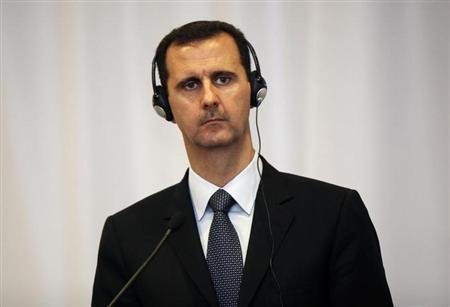
A new Syrian opposition group linked to a prominent cleric said on Thursday President Bashar al-Assad would have to step down as part of any political solution to the civil war, setting out its position ahead of possible peace talks in Moscow this month.
Assad's ally Russia is seeking to gather Syrian government and opposition figures at the end of January to discuss ways to end the nearly four-year conflict which has killed around 200,000 people according to the United Nations.
Moaz al-Khatib, a former opposition chief and former imam of the Umayyad Mosque in Damascus, posted a statement on his Facebook page on Thursday which said there would not be a solution "without the departure of the head of the regime".
Assad has dismissed calls to step down by Khatib and other figures in the past. Opposition groups and their Western and Arab allies say the Syrian president has lost legitimacy and must go.
Khatib said the statement was on behalf of the "Syria al-Watan" (home) organisation and was addressed to the Syrian people. It was not immediately clear whether he was the head of the group and which other members it included. He was not immediately available for comment.
The statement also said any talks would only be taken seriously if they ordered the government to stop the "brutal bombardment" of the Syrian people which it described as "one of the biggest crimes in the history of humanity".
Syria's government says it is fighting a war against militants funded by foreign states. Assad made a rare visit to troops in a district of Damascus late on Wednesday and praised them for fighting "in the face of terrorism".
Thursday's statement appeared to be Khatib's response to invitations to the talks sent out by Russia to opposition figures this week. It did not make clear whether Khatib had been invited or would attend.
Khatib is the former head of the National Coalition for Syrian Revolutionary and Opposition Forces in Syria, the main political opposition in exile.
Although he no longer heads it, he is a respected figure regularly cited by diplomats as someone who could play a part in a future political solution for Syria. He visited Russia with other opposition figures in November to discuss the crisis.
He stepped down in March 2013 as head of the Western-backed opposition when he came under fire for advocating direct talks with government and offering Assad a negotiated exit.
The opposition coalition now has little influence over insurgents fighting to overthrow Assad in a conflict that has been further complicated by the success of rival hardline Islamist groups.
